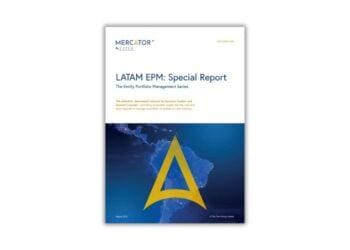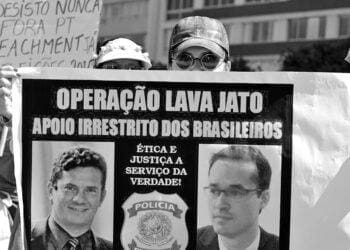Attention to anti-corruption compliance has grown dramatically in Latin America in the last few years. The trend is fueled by continued robust enforcement of the FCPA against Latin American-based companies, the recognition of compliance programs as mitigating factors in local legal regimes and the increased willingness of certain local governments to enforce their own anti-corruption laws. This has led to a rise in local compliance know-how in various parts of the region. Communities of attorneys, accountants, investigators and other compliance professionals are forming quickly in markets like Brazil, Mexico, Argentina and Colombia.
With this new attention to compliance, some common mistakes are also emerging. The following four were expressed in panel discussions in last month’s inaugural ACI Andean Summit on Anti-Corruption Compliance & Enforcement.
Failing to Localize Global Compliance Programs
When global companies implement the same policies and communication strategies in Latin America as they do in other parts of the world, programs tend to lose impact. People in Latin America commonly describe the need to “tropicalize” programs to make them relevant on the ground. While local practitioners recognize that international norms must be understood and embraced, local context must also be considered during implementation. This means that tone from the top should be displayed in ways that are credible to local audiences. Policies should reference local standards. Local examples of compliance challenges and breaches should be used in trainings.
Under-appreciating the Delicate Nature of Internal Investigations
Among Latin American companies still unaccustomed to conducting formal internal investigations pursuant to international standards, misconceptions tend to abound. Both the value of getting to the truth within an organization and the way in which this should be done are often misunderstood. Local actors are gradually learning more about the implications of the failure to investigate properly, evidence preservation, data protection rules, protecting the attorney-client privilege, when to use external resources, how to establish credibility with enforcement officials, and when to voluntarily disclose wrongdoing to the government. Given the delicate and potentially explosive nature of internal investigations, local compliance communities are gaining an appreciation for the importance of doing them correctly, sometimes after making initial mistakes.
Misunderstanding the Compliance Function’s Place within an Organization
Compliance teams are still finding their place throughout Latin America. In many local companies, they are new, and companies are still treating them as add-ons rather than core components of the organization. Executive management is slowly learning where to position compliance teams and how to publicize their new roles. Business units are learning how to interact with them. Recruiters are learning where to find qualified individuals to staff them. The Director of the SEC’s Enforcement Division, Andrew Ceresney, recently proposed the following questions to help companies gauge the effectiveness of the compliance role within their organizations:
Are compliance personnel included in critical meetings?
Are their views typically sought and followed?
Do compliance officers report to the CEO and have significant visibility with the Board?
Is the compliance department viewed as an important partner in the business and not simply as a support function or a cost center?
Is compliance given the personnel and resources necessary to fully cover the entity’s needs?
Failing to Protect the Compliance Department’s Independence
A compliance unit’s voice within an organization should be independent. If not, the company runs the risk that compliance-related interests will be overshadowed by business ones, at critical times and in critical circumstances, to the company’s ultimate detriment. This lesson is particularly relevant in Latin America, where local economies often expand and contract, increasing pressure on businesses to perform, and sometimes merely to stay alive. Intense pressure can cause business leaders to lose sight of the fact that compliance is not only a legal necessity, it is good for business, too. These situations sometimes put compliance teams on the defensive, trying to convince others of their value within the organization. Local compliance professionals are learning to make the case, demonstrating that a modest investment in compliance up front can avoid major costs, disruptions and liabilities in the future.
The opinions expressed in this post are those of the author in his or her individual capacity and do not necessarily represent the views of anyone else, including the entities with which the author is affiliated, the author`s employers, other contributors, FCPAméricas or its advertisers. The information in the FCPAméricas blog is intended for public discussion and educational purposes only. It is not intended to provide legal advice to its readers and does not create an attorney-client relationship. It does not seek to describe or convey the quality of legal services. FCPAméricas encourages readers to seek qualified legal counsel regarding anti-corruption laws or any other legal issue. FCPAméricas gives permission to link, post, distribute or reference this article for any lawful purpose, provided attribution is made to the author and to FCPAméricas LLC.



 Matteson Ellis serves as Special Counsel to the FCPA and International Anti-Corruption practice group of Miller & Chevalier in Washington, DC. He is also founder and principal of Matteson Ellis Law PLLC, a law firm focusing on FCPA compliance and enforcement. He has extensive experience in a broad range of international anti-corruption areas. Previously, he worked with the anti-corruption and anti-fraud investigations and sanctions proceedings unit at The World Bank.
Mr. Ellis has helped build compliance programs associated with some of the largest FCPA settlements to date; performed internal investigations in more than 20 countries throughout the Americas, Asia, Europe and Africa considered “high corruption risk” by international monitoring organizations; investigated fraud and corruption and supported administrative sanctions and debarment proceedings for The World Bank and The Inter-American Development Bank; and is fluent in Spanish and Portuguese.
Mr. Ellis focuses particularly on the Americas, having spent several years in the region working for a Fortune 50 multinational corporation and a government ethics watchdog group. He regularly speaks on corruption matters throughout the region and is editor of the FCPAméricas Blog.
He has worked with every facet of FCPA enforcement and compliance, including legal analysis, internal investigations, third party due diligence, transactional due diligence, anti-corruption policy drafting, compliance training, compliance audits, corruption risk assessments, voluntary disclosures to the U.S. government and resolutions with the U.S. government. He has conducted anti-corruption enforcement and compliance work in the following sectors: agriculture, construction, defense, energy/oil and gas, engineering, financial services, medical devices, mining, pharmaceuticals, gaming, roads/infrastructure and technology.
Mr. Ellis received his law degree, cum laude, from Georgetown University Law Center, his masters in foreign affairs from Georgetown’s School of Foreign Service, and his B.A. from Dartmouth College. He co-founded and serves as chairman of the board of
Matteson Ellis serves as Special Counsel to the FCPA and International Anti-Corruption practice group of Miller & Chevalier in Washington, DC. He is also founder and principal of Matteson Ellis Law PLLC, a law firm focusing on FCPA compliance and enforcement. He has extensive experience in a broad range of international anti-corruption areas. Previously, he worked with the anti-corruption and anti-fraud investigations and sanctions proceedings unit at The World Bank.
Mr. Ellis has helped build compliance programs associated with some of the largest FCPA settlements to date; performed internal investigations in more than 20 countries throughout the Americas, Asia, Europe and Africa considered “high corruption risk” by international monitoring organizations; investigated fraud and corruption and supported administrative sanctions and debarment proceedings for The World Bank and The Inter-American Development Bank; and is fluent in Spanish and Portuguese.
Mr. Ellis focuses particularly on the Americas, having spent several years in the region working for a Fortune 50 multinational corporation and a government ethics watchdog group. He regularly speaks on corruption matters throughout the region and is editor of the FCPAméricas Blog.
He has worked with every facet of FCPA enforcement and compliance, including legal analysis, internal investigations, third party due diligence, transactional due diligence, anti-corruption policy drafting, compliance training, compliance audits, corruption risk assessments, voluntary disclosures to the U.S. government and resolutions with the U.S. government. He has conducted anti-corruption enforcement and compliance work in the following sectors: agriculture, construction, defense, energy/oil and gas, engineering, financial services, medical devices, mining, pharmaceuticals, gaming, roads/infrastructure and technology.
Mr. Ellis received his law degree, cum laude, from Georgetown University Law Center, his masters in foreign affairs from Georgetown’s School of Foreign Service, and his B.A. from Dartmouth College. He co-founded and serves as chairman of the board of 








